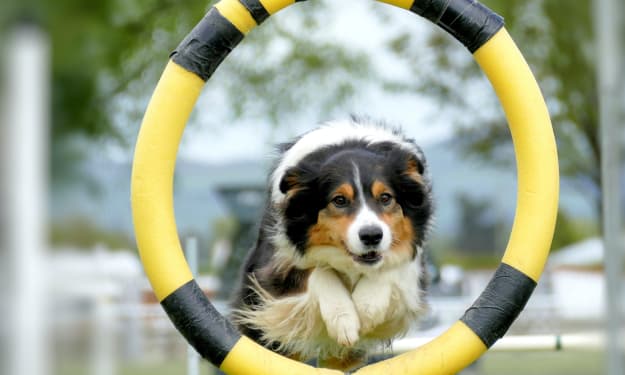Role of Dog Neurologists in Diagnosing and Treating Neurological Disorders
In this article, we will delve into the significance of dog neurologists in diagnosing and treating neurological disorders.

Neurological disorders in dogs can have severe and debilitating effects on their overall health and well-being. Just like humans, dogs are also susceptible to various neurological conditions that can affect their brain, spinal cord, nerves, and muscles. Identifying and treating these disorders require specialized knowledge and expertise, which is where a dog neurology specialist plays a crucial role.
In this article, we will delve into the significance of dog neurologists in diagnosing and treating neurological disorders, the training they undergo, and the advanced techniques they employ to provide the best possible care for our beloved canine companions.
Understanding Dog Neurology
Dog neurology is a specialized branch of veterinary medicine that focuses on the study of the nervous system in dogs. The nervous system in dogs is composed of the brain, spinal cord, and peripheral nerves, and it plays a vital role in controlling and coordinating various bodily functions. Neurological disorders in dogs can result from congenital anomalies, traumatic injuries, infections, tumors, autoimmune diseases, and metabolic disorders.
Role of Dog Neurologists in Diagnosis
Comprehensive Neurological Examinations
When a dog presents with neurological symptoms such as seizures, weakness, paralysis, altered behavior, or difficulty walking, a dog neurologist in Maryland is often consulted. Dog neurologists are trained to perform comprehensive neurological examinations to assess the dog's mental status, cranial nerve functions, motor and sensory abilities, coordination, and reflexes. These examinations help in localizing the affected area in the nervous system and narrowing down potential causes.
Advanced Imaging Techniques
To further evaluate and pinpoint the underlying cause of neurological symptoms, dog neurologists utilize advanced imaging techniques such as magnetic resonance imaging (MRI) and computed tomography (CT) scans. These non-invasive procedures allow them to visualize the brain and spinal cord with high precision, aiding in the diagnosis of conditions like brain tumors, spinal cord injuries, and inflammation.
Cerebrospinal Fluid (CSF) Analysis
In some cases, cerebrospinal fluid (CSF) analysis may be required. A dog neurologist may perform a CSF tap, which involves collecting a sample of the cerebrospinal fluid surrounding the brain and spinal cord. Analysis of the CSF can provide essential diagnostic information about infections, inflammatory conditions, and bleeding within the nervous system.
Treating Neurological Disorders
Medication Management
Once a dog neurologist has diagnosed a specific neurological disorder, they devise a treatment plan tailored to the individual canine patient. In many cases, medication is the primary form of treatment. Dog neurologists are well-versed in the pharmacological management of various neurological conditions, including epilepsy, inflammatory disorders, and pain control.
Surgical Intervention
For certain neurological conditions like brain tumors, intervertebral disc herniations, or spinal cord injuries, surgical intervention may be necessary. Animal neurologists in Maryland work closely with veterinary surgeons to perform intricate and delicate procedures to alleviate the underlying issue and improve the dog's quality of life.
Rehabilitation and Physical Therapy
After surgical procedures or in cases where neurological disorders cause physical impairments, dog neurologists often recommend rehabilitation and physical therapy. These programs aim to help dogs regain mobility, strength, and balance through specialized exercises and techniques.
Collaborating with Veterinarians and Specialists
Dog neurologists collaborate with general veterinarians and other specialists to provide comprehensive care for canine patients. They often act as consultants, offering their expertise in challenging cases that involve neurological symptoms. Effective communication and teamwork between dog neurologists and other veterinary professionals ensure that dogs receive the best possible care and treatment options.
Ongoing Research and Advancements
Dog neurologists actively participate in research to expand their understanding of neurological disorders in dogs and to discover new treatment modalities. Ongoing research contributes to advancements in diagnostic techniques, treatment methods, and the overall improvement of neurological care for canines.
Education and Training for Dog Neurologists
Becoming a dog neurologist requires extensive education and training. After completing a Doctor of Veterinary Medicine (DVM) degree, aspiring neurologists must undertake a specialized residency program in neurology, which typically lasts for three to four years. During this residency, they receive hands-on training under the guidance of experienced neurologists and gain exposure to a wide range of neurological cases. After completing their residency, candidates must pass rigorous board-certification examinations to become Diplomates of the American College of Veterinary Internal Medicine (ACVIM) in Neurology.
Conclusion
Dog neurologists play a critical role in diagnosing and treating neurological disorders in canines. Their specialized training, use of advanced diagnostic tools, and collaboration with other veterinary professionals ensure that our beloved furry friends receive the best possible care when facing neurological challenges. As the field of veterinary neurology continues to advance, the outlook for dogs with neurological disorders improves, offering hope for better outcomes and improved quality of life for our four-legged companions.
If you are looking for a dog neurologist in Maryland, you can rely on Veterinary Neurology of the Chesapeake.






Comments
There are no comments for this story
Be the first to respond and start the conversation.